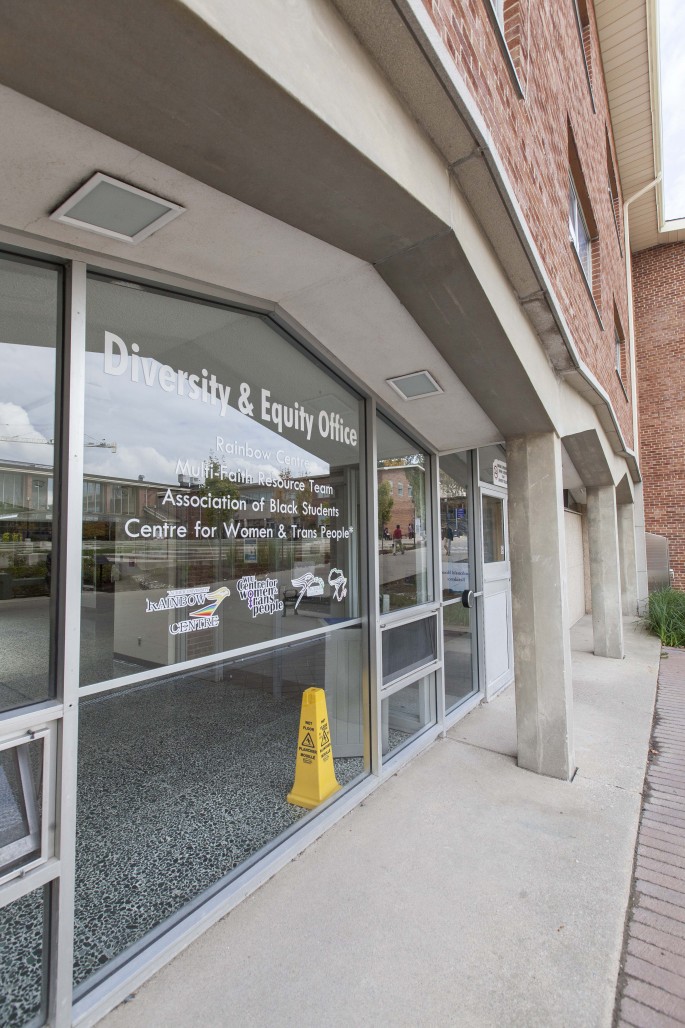Laurier to participate in Black History Month through a series of events at Brantford and Waterloo campuses

Wilfrid Laurier University is participating in Black History Month through a series of events on the Waterloo and Brantford campuses aimed at “recogniz[ing] historic and ongoing struggles toward racial equality and celebrat[ing] the experiences and accomplishments of Black Canadians,” the press release about Black History Month said.
“Laurier uses Black History Month as an opportunity to engage the community in a number of ways…[the] recognition of community members who have expertise in Black history or a passion for Black history…that highlights the university’s commitment and [also] highlights the commitments of Black people in the Laurier community,” said Barrington Walker, associate vice-president of Equity, Diversity and Inclusion and professor in the department of History at Laurier.
These events, mostly virtual and organized in part by the Black Student Collective (Brantford) and Association of Black Students (Waterloo) include:
Brantford:
- Book Display
- Chalk Wall
- Poster Campaign
- Black Student Collective General Meetings and Discussions
- “Queer Sphere: Honouring Black LGBTQ+ Histories”: Facebook Campaign
- “Afro Beats” Dance Class
- “Inward Peer Mentorship Program for Racialized Youth” Culture and Games Night
- “The Future is Afro” BHM Showcase
- “A Talk with Miss J.”
Waterloo:
- “Beating the Odds” Conference
- Queen & Slim movie night and chips
- “Black People Care”: Care packages and BYOD mac and cheese (first come, first serve)
- “Sex Trivia” with Samantha Bedey
- “ABS Moves”: Yoga
- “ABS Moves”: Dancing Workshop
- Movie night (TBA)
- “Black People Care”: Beauty Club Outlet Pop-Up
- Therapy Dogs
- BSC Culture Show (with a bus to Brantford)
While there are some drawbacks to being unable to host some of these events in person, Walker sees a unique opportunity in them being held virtually.
“A lot of the events that would have been primarily Laurier-facing…we have the opportunity for people from all over the world [to] actually participate in these events,” Walker said.
“All of the events that used to be local events are now essentially global events because things have all moved online. That’s something that we will—and should—maintain after we’re out of this pandemic.”
For Walker, Black History Month is an ongoing story that represents both “continuity and change.”
“What’s going to remain constant in this celebration of Black history is going to be the recognition of accomplishments, the resiliency of Black communities across North America and across the world and a recognition of the role that African-descended people have had in building the country,” Walker said.
“I think what it does is it gives folks who don’t normally think about these histories-because they’re often marginalized-an opportunity to think about them. It places the spotlight on the histories of Black people.”
Today, Black History Month “is less of an academic exercise and more of a call to action in the present time that we’re living in,” according to Walker.
According to the Department of Canadian Heritage, whose 2021 theme for Black History Month is “The Future is Now,” that sentiment is shared.
Walker also identified two significant takeaways from Black History Month.
“I think one of the lessons that we are learning in the current moment is that these societies that we have built are only as strong as the ways in which we treat the most marginalized people in them,” Walker said.
“So if you want to get a sense of the health of your society and the health of your democracy, take a look at the way in which it treats equity-deserving groups, including people of African descent.”
“The second reason I would give is that without understanding the stories…you really don’t understand the history of the country…If you don’t know those stories, you only have a partial understanding of Canada and only a partial context with and through which to make sense of the current moment,” he said.
While events such as those taking place at Laurier are important for better understanding, acknowledging and recognizing Black history and its connection to the work that Black people are doing now, Walker reminds students that it is beneficial for them to do their own work as well.
“We’re living in [a part] of the country that was a historically significant area for people of African descent as well…[so] I would encourage members of the Laurier community to educate themselves about these histories as well and take on the challenge of learning more about the histories of Black people in Canada,” Walker said.


